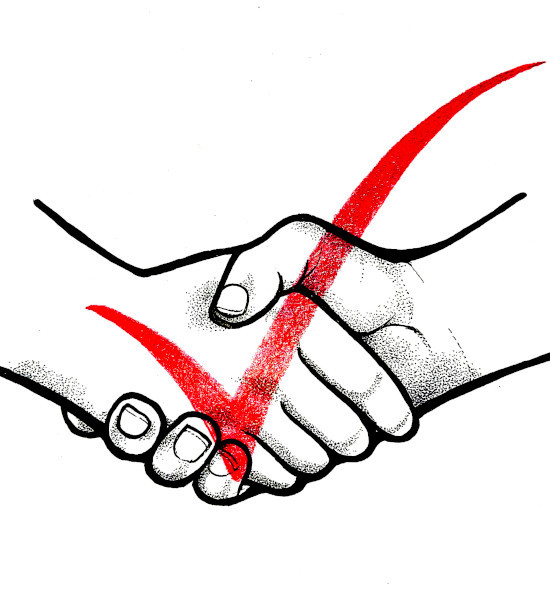U of W faculty no longer working under expired contract
UWFA makes gains on salary, research and governance

Illustration by Gabrielle Funk
After nearly a full academic year at the bargaining table, the University of Winnipeg (U of W) and the U of W Faculty Association (UWFA) ratified a collective agreement for 340 regular academic staff in early March.
Regular academic staff (R AS) form one of the UWFA’s three bargaining units. The category encompasses tenured faculty, librarians and full-time, teaching-focused instructors.
The previous R AS contract expired in 2020, though it continued to be enforced pending the negotiation of an updated agreement.
UWFA president Peter Miller says the union “made gains or held its ground” in several key areas, including salary, the role of faculty in university governance and ensuring professors are able to devote ample time to research.
“I think we were pleased to make a series of gains like that, (to) build strength and retain faculty centrality to the university,” Miller says. The new agreement will “make it easier for faculty to do their research, do their teaching, and that means, at the end of the day, support students,” he says.
The collective agreement will be posted on the U of W website once wording has been finalized by both parties. The U of W administration declined to comment before the agreement is made public.
The new deal will compensate faculty for missing pay increases from 2020 to the present, as well as locking in more significant salary increases in coming years.
Miller says the retroactive pay increases fall short of UWFA’s goal to see its members fully compensated for the period of above-average inflation from 2022 to 2023, but that the raises coming in subsequent years will represent real dollar gains.
UWFA’s biggest concession was on contract faculty workloads. Miller says full-time instructors will now be required to teach the equivalent of four courses per term, representing a 33 per cent increase over the previous agreement.
Miller says this concession was the subject of “hours and hours of membership meetings,” but, ultimately, a “strong majority” of members voted in favour of the agreement.
“This was a hard fight and something we didn’t want to give up, but that was something the university was very keen on,” he says. “There are kind of good and bad things, I guess. In the end ... we think it’s a good agreement, and it’s one that’s fair to both sides.”
UWFA’s representative for instructors declined to comment.
A key protection relating to contract faculty was maintained in the new agreement. Article 20 of the RAS agreement limits the percentage of courses that can be taught by contract faculty, a relatively rare provision for collective agreements of this kind that bolsters the centrality of research- and mentorship-oriented faculty in teaching at the U of W.
A 2018 survey by the Canadian Association of University Teachers found that “sizable proportions” of surveyed contract faculty “worked more than eight hours a day and into the evenings at least several days each week, and 62 per cent said they work most weekends.”
Now that bargaining has finally wrapped up, Miller says the UWFA is looking forward to opportunities to work alongside its fellow faculty unions and other interest groups to hold the provincial government accountable to its election promise to reverse cuts, enhance research and support post-sec- ondary institutions.
“We have had a relatively large amount of facetime to put our priorities out there, and some of our priorities, the priorities of (the U of W) Student(s’) Association and the administration really align,” he says. “Obviously, other elements, our priorities diverge, but that’s ... our main way of lobbying.”
Published in Volume 78, Number 23 of The Uniter (March 28, 2024)






